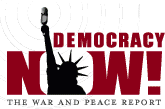News
The End of Libraries, Part III
Nov 06, 2011

It has begun. Last Wednesday, Amazon announced its new book-lending add-on to its Amazon Prime service.1 What it offers is fairly meager and the model, particularly in its remittance to publishers, is, to my mind, seriously flawed:
- Customers may check out only one book per calendar month.
- A mere 5,000 titles are available, and none from the top six U.S. publishers.
- Loans can only be read on the Kindle family of products and not on other devices, even if they run the Kindle app.
- The service costs $79 per year which, if the customer only uses it for book lending, works out to $6.58 per loan. Many Kindle titles can be purchased for that price or not much more.
- Remittance to publishers is either by flat fee, in which case one of the parties is probably getting a crummy deal; or, if I am reading the WSJ story correctly, Amazon is paying the publisher for each loan the equivalent of what they would pay them for a sale.
Meanwhile, librarians have already begun whistling in the dark2,3, their arguments relying primarily on the weakness of the initial Amazon product. Still, that product is already miles ahead of what is being offered by most public libraries where, if a title is even available to you in eBook format, you will almost certainly have a long wait for it.
In the final analysis, readers want to read and writers want to be read. Any institution which facilitates that relationship will flourish; any that inhibits it will fade. At present, Amazon is facilitating and libraries and publishers are inhibiting the relationship. If the latter don’t get their act together—and fast—they will render themselves redundant. Publishers may come and go, but America will let its public library network fade at its peril. This further blot on our already tattered escutcheon is not one from which we will easily recover, in our headlong pursuit of oligarchy, mediocrity, and irrelevance.
____________________
1 Amazon, Now a Book Lender, by Jeffrey A. Trachtenberg and Stu Woo, from the Wall Street Journal, November 3, 2011, accessed November 5, 2011.
2 Why Amazon’s Lending Library Is Not a Threat to Public Libraries, by Bobbi Newman, from Librarian by Day, November 4, 2011, accessed November 5, 2011.
3 Amazon Starts Lending Ebooks, but Head of ALA Says Libraries Still Offer Best Value, by Michael Kelley, from The Digital Shift, November 3, 2011, accessed November 5, 2011.
The End of Libraries, Part II
Oct 22, 2011
 The threat facing public libraries is real.1 It has not made itself manifest as yet, because no commercial enterprise has assembled the eBook lending package which is demanded by an eReading public starved for content.
The threat facing public libraries is real.1 It has not made itself manifest as yet, because no commercial enterprise has assembled the eBook lending package which is demanded by an eReading public starved for content.
The threat facing traditional publishers on the other hand, is here, today, and it is equally serious. Not only is Amazon publishing authors directly themselves (122 titles are coming out this fall alone2 and many, many more are planned for next year), but authors are increasingly self-publishing on the Internet and many nontraditional publishing entities besides Amazon are springing up to help them.3,4
The authors whom publishers are likely to lose first are the ones who are most secure in their earning power and therefore of greatest value to them. J.K. Rowling, author of the Harry Potter books, for instance, will be selling the eBook versions of that popular series exclusively on her own website,5 Pottermore.6
Public libraries and traditional publishers can save themselves only if they act quickly and boldly. The following is what I think they need to do, and the only alternative to this course of action, as far as I can see, is a not-so-slow but an ever-so-painful death.
Publishers: Convert every title, new and backlist, to eBook formats that support every device out there. Give them all to a nonprofit business entity, which we will here call AmPLE, for American Public Library Enterprise. AmPLE will manage the eBook distribution to public library patrons.
Public Libraries: Determine your eBook budget for the coming 12 months and send a check for it to AmPLE.
AmPLE: Get your site up superquick and start lending to your libraries’ patrons. For every checkout, decrement the eBook account of the borrower’s library by 50 cents, send 45 cents to the publisher, and keep 5 cents for yourself. Patrons can check out up to three titles at a time regardless of whether one or a thousand other borrowers have borrowed them at the same time. And no due date. When a reader wants another book, they will return one.
Do the math. In today’s model, a publisher might sell—let’s be liberal—2000 copies of a blockbuster new title to 50 state library consortia (the standard arrangement today) for $20 each, or $40,000. Period. End of transaction. The consortia then sets about loaning these 2000 copies to their 330 million patrons, 2000 at a time for two-week checkouts. Ridiculous.
Or. Check out that same blockbuster, which the publisher has provided to AmPLE free of charge, to—let’s be conservative—a half a million readers on Day One, at 45 cents a checkout, or $225,000—almost six times the amount the publisher would have received on the old model, and that’s only on Day One. That one title continues to earn money for the publisher throughout its term of copyright—until 70 years after the death of the author.
The 50-cent “charge” for a checkout is a reasonable figure, arrived at by dividing the average library’s annual budget for new acquisitions by the average annual circulation7. This figure ranges from 25 to 75 cents for most libraries.
Today, everybody loses, and this includes the authors. They need the expert services of traditional publishers. They need the nurturing, the editing, the production, and the management of their work, freeing them to do the work itself. We readers need traditional publishers, for their selectivity and the imprimatur of quality which their selectivity exhibits.
And we all need public libraries, one of the last bastions of egalitarian democracy in the U.S. Through public taxation, public libraries provide us all with equal access to knowledge and a wealth of information services which must not be relegated to the sole province of the well-to-do. Study after study8 affirms the huge return to our society on investment in our public libraries.
As eBooks gradually—or perhaps not so gradually—replace the physical book, we need to ensure that our public libraries provide these resources as widely, efficiently, and economically as the technology allows. A system like the one described above does just that. Under this system, public libraries will flourish rather than fade, and everyone else wins as well—authors, publishers, and readers.
____________________
1 The End of Libraries, Part I. AllTogetherNow.org, Oct 18, 2011.
2 Amazon Signs Up Authors, Writing Publishers Out of the Deal, by David Streifield, from the New York Times, Oct 16, 2011, accessed Oct 22, 2011.
3 Lulu.com
4 Publishgreen.com
5 Harry Potter Ebooks To Be Released in Open Google Ebook Format, by Pamela Parker, Jul 20, 2011, accessed Oct 22, 2011.
6 Pottermore
7 Data File Documentation, Public Libraries Survey, Fiscal Year 2009 (.pdf), from IMLS, Jul 2011, accessed Oct 22, 2011.
8 The Value of Public Libraries, links assembled by Stephen Abram, accessed Oct 22, 2011.
The End of Libraries, Part I
Oct 18, 2011
 I am a library manager, a convert to the eBook format, and very worried. Although speculation regarding the collapse of public libraries has been in the infosphere since the advent of the internet, the public library’s continued existence has never been more uncertain than it is today.
I am a library manager, a convert to the eBook format, and very worried. Although speculation regarding the collapse of public libraries has been in the infosphere since the advent of the internet, the public library’s continued existence has never been more uncertain than it is today.
First, consider that in the face of growing demand, libraries around the nation are cutting back on new acquisitions, hours, and staffing. In tough economic times, public libraries, which are almost always primarily funded at the local level, are easy targets for cost cutting, and they are being targeted practically everywhere.
And then consider the advent of eBooks, which are exploding in popularity. Amazon sells more of them than they do hardcovers and paperbacks combined. There are four good reasons why eBooks will marginalize, if not eliminate, the paper-based book within a few years:
- Portability. You can access an unlimited number of books on one reader.
- Economics. For the publisher, the economics are irresistible—no trees to cut down, paper to manufacture, type to set, or books to print, bind, store, and distribute by truck, train, and plane to the four corners of the world. In time, those irresistible economics will filter down to the buyer of books in the form of greatly reduced prices, at which point Amazon’s eBook sales will go through the roof.
- Value Added. You can index, search, cut-and-paste, bookmark, and annotate eBooks. You can embed audio and video and Internet links in them. In time, eBooks will add values and features we aren’t even dreaming about today.
- Access. For the first time in history, you don’t have to go to the book. All you have to do is want it and, in a few seconds, anywhere in the world, the book comes to you.
And finally, consider Amazon.com. If they are successful in their current effort to get publishers to allow them to loan eBooks through their Amazon Prime service, the single most important motivation for supporting public libraries, at least to middle-class readers like myself, will vanish overnight. I will continue to vote for municipal taxes to support our public library, because I understand the vital importance of public libraries to a democracy. However, millions will not, and libraries from coast to coast will begin closing their doors.
I do not believe I am being an alarmist. We are in a political climate where public services are being privatized, downsized, or eliminated at a rapid rate. And if libraries cannot begin to serve their patrons’ eBook reading needs—and they don’t come close to doing so today—and an Amazon or other commercial endeavor steps in to fill that need, libraries are finished.
In my next posting, I will discuss how public libraries—and, for that matter, traditional publishers (their existence also being threatened by the internet)—can not only survive but flourish to a greater extent that they ever have, in this brave new eBook-dominated world.
About Face(book)
Apr 13, 2009
 Miss Manners had a letter that caught our interest last week.1 A woman wrote in regarding Facebook. She had responded to postings from two of her “friends” on the “social networking” site. In both instances, the writers of the original postings told the letter writer, more or less, to mind her own business.
Miss Manners’s response was, as usual, right on point:
Miss Manners had a letter that caught our interest last week.1 A woman wrote in regarding Facebook. She had responded to postings from two of her “friends” on the “social networking” site. In both instances, the writers of the original postings told the letter writer, more or less, to mind her own business.
Miss Manners’s response was, as usual, right on point:
“Your friends are turning into virtual friends… The model for this, as Miss Manners is not the first to observe, is the celebrity. They “do” publicity through trusted chroniclers—in this case themselves—but are huffy about their “privacy” when they manage to attract someone’s interest… Miss Manners is afraid you must note whether their confidences are being made to you as a friend or the wide world of virtual so-called friends who are not expected to show interest. Or you could make new friends who value real friendship.”Facebook and MySpace are, in reality, antisocial networking sites where individuals can strut their stuff before a captive aggregation of friends and acquaintances, with the implicit understanding that their observations are to be taken at face value, sans comment, contention, or even commiseration, except of the most cursory sort. Far from encouraging close relationships, these sites offer arms-length protection from the true interactions of friendship, and merely abet and exacerbate a disturbing isolationism, so necessary in turning us all into corralled consumers for the corporatocracy.
So to our few friends on Facebook: Au revoir. You know where to find us.
____________________
1 A Slap in the Facebook, by Miss Manners (Judith Martin), quoted in the Washington Post, Apr 8, 2009, accessed Apr 8, 2009.
Stop the Presses?
Mar 19, 2009
 Newspapers are disappearing from the land.
Newspapers are disappearing from the land.
Denver’s Rocky Mountain News shut down this month, a few days shy of its 150th anniversary (the longest-running business in Colorado). The San Francisco Chronicle, Seattle Post-Intelligencer, and Tucson Citizen are on the brink of closure. The Chicago Tribune, Philadelphia Inquirer, and New Haven Register are in bankruptcy. The venerable Christian Science Monitor is about to go web only.1
Meanwhile, journalism students, at least in Australia, don’t read newspapers, preferring to get their news from TV or the Internet.2
It is the height of irony that the greatest communication medium ever devised may lead to a level of ignorance regarding matters most affecting our well-being that has not been endured by the general public since before the invention of the printing press. Not that the mainstream media, controlled by a handful of billionaires,3 drenched in entertainment posing as news, increasingly right wing, and starved of investigative reporting, hasn’t been abrogating its responsbilities for some time now.
However, if anyone thinks the Internet, let alone the wretched, propagandistic, shrill, and cynical television “news” industry, is a substitute for newspapers, they had better wake up and smell the chloroform. Most Internet news is rehashed newspaper stories and those newspapers have seen their advertising revenues plummet. As they begin to close, the vestiges of investigative reporting—the soul of the newspaper industry—will disappear.
As Bruce Ackerman and Ian Ayres write in the Guardian, “[T]here are huge costs to losing a vibrant core of investigative reporters covering local, national, and international stories. The internet is well suited to detect scandals that require lots of bloggers to spend a little bit of time searching for bits of incriminating evidence. But it’s no substitute for serious investigative reporting that requires weeks of intelligent inquiry to get to the heart of the problem. Without Woodwards and Bernsteins, there will be even more Nixons and Madoffs raining mayhem and destruction.”4
There already are, as you know if you haven’t been ripvanwinkling it for the past eight years. Who was watching the SEC not watching the investment banks? And how many stories we never read of the piecemeal dismantling of our democracy might have provided us with an early warning that could have turned things around in 2004? We still have not nearly plumbed the depths of those shameful times, and we may never.
The price of freedom is eternal vigilance. And every day, more and more of our vigilant watchers have turned in their notebooks and are looking for work.
No news is good news? From now on, it is decidedly and dangerously bad news.
____________________
1 Rocky Mountain News Ceases Publication as Other Newspapers Face Threat of Similar Fate, from Democracy Now, Mar 6, 2009. All notes accessed Mar 13, 2009.
2 Journalism Students Don’t Read Newspapers Says QUT [Queensland University of Technology] Journalism Professor, from TechWired Australia, Mar 12, 2009.
3 The Media Are the Message, from All Together Now, Sep 6, 2008.
4 A national endowment for journalism, by Bruce Ackerman and Ian Ayers, from the Guardian [UK], Feb 13, 2009.
Let Us Now Praise ... Amy Goodman
Mar 04, 2009
 She produced the evening news for New York’s WBAI radio station for ten years, then founded Democracy Now1 in February 1996. Intended as a short-term daily election program for the 1996 campaign, it was so popular that it has extended its run for 13 years.
She produced the evening news for New York’s WBAI radio station for ten years, then founded Democracy Now1 in February 1996. Intended as a short-term daily election program for the 1996 campaign, it was so popular that it has extended its run for 13 years.
She has been beaten, arrested, and banned in East Timor; she, along with Jeremy Scahill, won the 1998 George Polk award for a documentary exposing Chevron’s role in killing Nigerian protestors; and she was manhandled and arrested by the police during the Republican convention in 2008.
Democracy Now, her one-hour news program, airs five days a week on 750 radio stations, satellite and cable television, and the internet, and is available in both audio and video podcasts. She is the first journalist to win the Right Livelihood Award, widely known as the “Alternative Nobel Prize” for “developing an innovative model of truly independent grassroots political journalism that brings to millions of people the alternative voices that are often excluded by the mainstream media.” She has won a host of other awards.
 For her physical and intellectual bravery; for her devotion to the cause of exposing cupidity and criminality in high places; for her innovative exploitation of, and longevity in a media world controlled by a handful of billionaire corporate moguls; for giving voice, day after day and year after year, to the progressive struggle for a humane and just world, we award Amy Goodman our sixth Golden A for Achievement.
For her physical and intellectual bravery; for her devotion to the cause of exposing cupidity and criminality in high places; for her innovative exploitation of, and longevity in a media world controlled by a handful of billionaire corporate moguls; for giving voice, day after day and year after year, to the progressive struggle for a humane and just world, we award Amy Goodman our sixth Golden A for Achievement.
____________________
1 DemocracyNow.org
What You Don’t Know
Feb 20, 2009

Note: With this entry, we go to a five-day-a-week schedule at All Together Now, producing a new item Mondays through Fridays. We’ll take the weekend off to work on other projects, including, we hope, greater involvement in the Vermont Progressive Party.
The Washington press corps has undergone a sea change in the past few years, with mainstream domestic media coverage down by over half and a marked rise in so-called niche outlets. These latter serve special interests with high-priced newsletters and subscription-based web sites that help special corporate interests learn how to press their agenda on Congress and the White House.
The New Washington Press Corp: A Special Report, written by journalist Tyler Marshall and the Pew Research Center’s Project for Excellence in Journalism relates a sad tale of a marked decline in coverage by outlets serving the public, which typically have an investigative slant to their reporting. Fewer than half the states have newspapers with Washington, D.C., bureaus. Wire and newspaper outlets accredited to cover Congress have plummeted from over 550 in 1985 to 160 in 2007, before the latest round of cutbacks. Only 32 of 1,400 newspapers had bureaus in Washington at the start of 2008 and is probably down to about 25 today. Many bureaus (Newhouse, Copley, LA Times, Chicago Tribune, Baltimore Sun, Hartford Courant) have closed altogether.
What used to be a tiny market of niche publications serving specialty interests, and looked down on by citizen-based media, have exploded in recent years. Bloomberg News is perhaps the best known. Some tidbits are available on its web site, but the cream is reserved for 275,000 clients worldwide who pay over $18,000 a year for access. These publications serve corporate and lobbyist interests and are rapidly supplanting news coverage that serves the public good.
Among the report’s conclusions: “Those influencing policy have access to more information then ever, while those affected by those policies—but not organized to shape them—are less likely to be informed.”
In tough economic times, the situation is only going to get worse. As D.C. reporting becomes less about keeping a watchful eye out for abuse, waste, corruption, and cronyism at the center of world power, and more about gathering useful intelligence for the purpose of advancing narrow corporate interests, the thirty-year trend toward vast inequities in wealth amid growing poverty and a declining middle class will only accelerate, imperiling our democracy.
Guys in Ties
Dec 19, 2008
 We don’t see a lot of neckties in Vermont, where we live, or New Hampshire, where we work. We guess Jim Douglas probably wears a tie—probably to bed—but he’s our governor, and he’s in that crowd we’re talking about.
We don’t see a lot of neckties in Vermont, where we live, or New Hampshire, where we work. We guess Jim Douglas probably wears a tie—probably to bed—but he’s our governor, and he’s in that crowd we’re talking about.
We see all these guys in ties these days, strutting before cameras, taking questions, not taking questions, rationalizing away the acts that have impoverished millions, brought industries to their knees, murdered innocents: greedy guys, corrupt guys, unapologetic, unashamed, unindicted.
We see these guys in ties, and we’re tempted to hide the silver, check for our wallet, lock up our daughters. When we see the odd guy wearing a tie up here in northern New England, we think, what are you trying to get away with today? Whose pension are you going to loot, which union are you going to bust, what sick old person are you going to screw over? We just can’t see guys in ties anymore without wondering what they’re up to. No good, we’re pretty sure.
What is it about that silly sliver of senseless cloth they all wear down their fronts, like badges of mastery, like cryptic IDs in a secret society of despoilers, like a fancy shield against anyone thinking they’re just nasty little schoolyard bullies, narrowminded, grasping, and despicable.
Guys in ties.
You Can Look It Up
Sep 19, 2008
 Obama wants kids to learn about sex before they can read; Alaska produces 20 percent of U.S. energy; and McCain doesn't know a Sunni from a Shia.
Obama wants kids to learn about sex before they can read; Alaska produces 20 percent of U.S. energy; and McCain doesn't know a Sunni from a Shia.
Actually, that last one is true. The other statements, however, are not. And if you are not sure about any of them, you can look it up on one of our favorite web sites, the eminently bookmarkable FactCheck.org. A project of the Annenberg Public Policy Center, FactCheck.org “monitor[s] the factual accuracy of what is said by major U.S. political players in the form of TV ads, debates, speeches, interviews, and news releases. Our goal is to apply the best practices of both journalism and scholarship, and to increase public knowledge and understanding.”
FactCheck.org is where all that spin (and worse) goes to die. A recent check of the home page revealed 12 entries regarding the Big Race. Nine of the 12 were critical of McCain campaign distortions (or outright lies) regarding the Obama campaign; two were critical of the Obama campaign.
The twelfth, interestingly enough, was called “Sliming Palin,” and corrected misstatements regarding the Divine Sarah which had popped up on the Internet. The corrections were even headed “False Internet claims and rumors fly about McCain’s running mate”; Obama’s name is not mentioned. Nevertheless, the McCain campaign produced an ad quoting FactCheck.org and ascribing those Internet misstatements to the Obama campaign. FactCheck, predictably, called them on it.
The truth can be viciously suppressed, as it is in China and most of the rest of the world. It can be bought off, as the military-industrial complex has bought off mainstream American media.1 Or it can be distorted, spun, or simply ignored altogether, as it is in political campaigns in the Age of Rove. The existence of a FactCheck.org then becomes crucial to those members of the populace who care about the truth, and understand that to the extent we are deprived of it, to that extent are we deprived of our liberty.
____________________
1 The Media Are the Message, from All Together Now, September 6, 2008
The Media Are the Message
Sep 06, 2008
 Is the Mainstream Media (MSM) finished? Has consolidation and the bean counters taken us past the point of no return?
Is the Mainstream Media (MSM) finished? Has consolidation and the bean counters taken us past the point of no return?
- Item: Before that staunch Democrat Bill Clinton signed the Telecommunications Act of 1996, conservative Clear Channel owned the maximum number of radio stations allowed: 40. Afterwards, at their peak, they owned nearly 1,200.1
- Item: Twenty-five years ago, 50 corporations controlled the vast majority of the MSM (newspapers, radio, and television). In 2004, that number was down to five.2
- Item: The number of foreign correspondents, during a period when we desperately needed to know more about the world, dropped from 188 in 2002 to 141 in 2006. Major newspapers such as the Boston Globe and Baltimore Sun have closed all their foreign bureaus.3
- Item: The administration, as part of what we have termed its Exit Strategy, has proposed cuts to funding for public broadcasting—the most trusted institution among the MSM—4that would slash 56 percent of their annual budget.5
- Consolidation
- Failure to serve local interests
- The assault on public broadcasting support
- Attacks on Net Neutrality
- An FCC deaf to the voice of the public
- Flawed transition to digital television
Newspapers may be purely private endeavors; the airwaves, however, are public, and those who utilize them are required by law to serve the public interest, and not merely the interests of their masters. As the report reminds us, “We have the obligation and authority to regulate the media to encourage it to perform its constitutionally intended role, and we have limits on overregulation that would stifle the role of the media. The trick is to find the right balance. The balance is out of kilter and it is time to assert responsible regulation so that the media can more effectively serve our democracy.” (pp. 2-3)
The report suggests solutions to each of the problems it identifies, and it is at least worth downloading for future reference and for the record it provides of the campaign contributions and lobbying expenditures of 24 major MSM players.
In our view, the MSM is probably beyond redeeming as a public service (where is Ralph Nader, for instance, who is polling 6-8 percent in some places despite a 100 percent MSM blackout?). We need rather to turn our attention to preserving Net Neutrality, already suffering from corporate incursions that threaten the nature and value of this brave new medium. Once Internet service providers (ISPs) obtain the right to charge sites for moving into the fast lane, the Net is dead. That day is at hand, and a McCain presidency will see it implemented.
ISP mega-giants Comcast and Verizon know this very well, and since 2005 it’s been worth a cumulative $75 million to them in campaign contributions and lobbying to make that point to our elected public servants.
____________________
1False Premises, False Promises, by Peter DiCola, Research Director, Future of Music Coalition, December 2006 (Accessed September 1, 2008)
2Media Reform Information Center (Accessed July 26, 2008)
3US media can’t cover the news if they don’t cover the world, by John Hughes, The Christian Science Monitor, February 7, 2007 (Accessed September 1, 2008)
4National Roper Poll Ranks PBS #1 in Public Trust for the Fourth Consecutive Year, PBS Press Release, March 22, 2007 (Accessed September 1, 2008)
5Administration’s budget proposal includes unprecedented cuts for public broadcasting,from Tell Them Public Matters.org, undated (Accessed September 1, 2008)
6Media and Democracy in America Today: A Reform Plan for a New Administration (.pdf) (Accessed September 1, 2008)
Democracy Now! or Never?
Jul 28, 2008
 Yesterday, in the piece on LaVena Johnson, we had occasion to mention Democracy Now!, an alternative media news source which—let’s face it—is as skewed to the left as Fox News, Rush Limbaugh, Ann Coulter, and others of their ilk are skewed to the right. However, whereas the latter are profit-based, laughingly biased, anti-intellectual, bottom-feeding hypocrites (people as intelligent and well paid as they are can’t possibly entertain the beliefs and opinions they lavish on the poor, angry folk who make up their audience), Democracy Now! is non-profit, meticulously fair, intelligent, and heartfelt. They deserve our attention and support.
Yesterday, in the piece on LaVena Johnson, we had occasion to mention Democracy Now!, an alternative media news source which—let’s face it—is as skewed to the left as Fox News, Rush Limbaugh, Ann Coulter, and others of their ilk are skewed to the right. However, whereas the latter are profit-based, laughingly biased, anti-intellectual, bottom-feeding hypocrites (people as intelligent and well paid as they are can’t possibly entertain the beliefs and opinions they lavish on the poor, angry folk who make up their audience), Democracy Now! is non-profit, meticulously fair, intelligent, and heartfelt. They deserve our attention and support.
 Their web site is at the link below. They have both audio and video podcasts available on their site or through iTunes (where I receive both versions to tote around on my iPod). Their one-hour Mon-Fri newscast is also available on over 700 radio stations and through a couple of satellite feeds. Amy Goodman is the principal host, teaming late in the week with Juan Gonzalez, who is also a columnist for the New York Daily News. Neither is as somber as their picture would lead you to believe.
Their web site is at the link below. They have both audio and video podcasts available on their site or through iTunes (where I receive both versions to tote around on my iPod). Their one-hour Mon-Fri newscast is also available on over 700 radio stations and through a couple of satellite feeds. Amy Goodman is the principal host, teaming late in the week with Juan Gonzalez, who is also a columnist for the New York Daily News. Neither is as somber as their picture would lead you to believe.
Where have you gone, Walter Cronkite? In 1983, 50 corporations controlled the vast majority of U.S. media.1 In 2004, that number was down to five. They are Time Warner, Disney, News Corporation (Rupert Murdoch's fiefdom), Bertelsmann of Germany, and Viacom (formerly CBS). General Electric’s NBC is a close sixth. To anyone paying attention, the quality of our mainstream media’s news reporting has deteriorated to the point where we hear less and less about things that matter, while more fluff and outright propaganda become our daily fare.
As journalist A.J. Liebling so sagely noted, “Freedom of the press belongs to those who own one.” Thanks to the Internet, anyone who has a point of view to put forward (lunatic or otherwise) can have a global presence for next to no cost. This is our answer to the decline of mainstream media, and Democracy Now! is a premier exemplar of the new powers granted us all by the Internet. There are others, and I will note some of them in future ATN entries. If you have a favorite news blog or alternative news site, podcast, or other media, let us know.
See Also, American Carnival: Journalism under Siege in an Age of New Media, by Neil Henry.
____________________
1Media Reform Information Center (Accessed July 26, 2008)
Copyright © 2008 All Together Now.